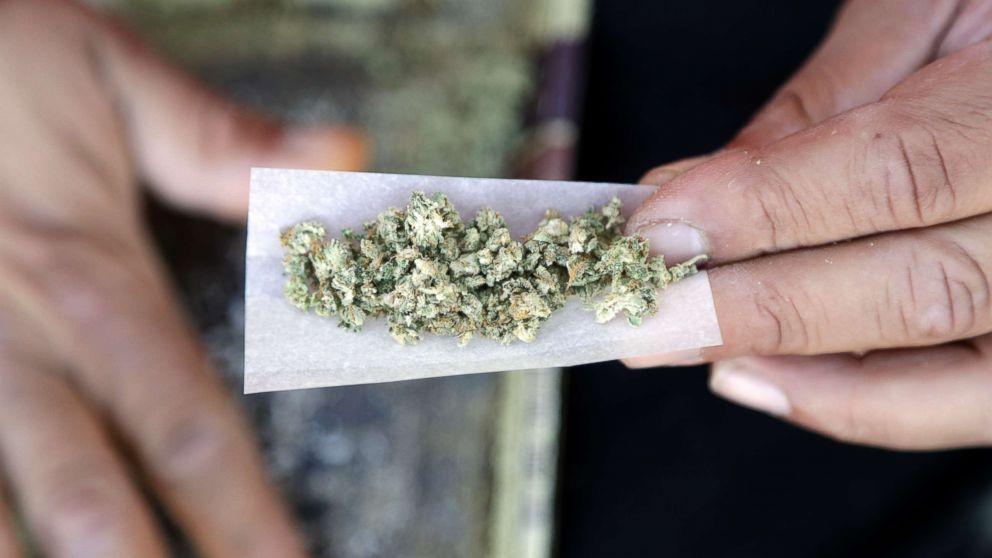In a world where the perception of cannabis is rapidly evolving, the age-old herb has found its way into myriad forms and methods of consumption, making it more accessible and appealing than ever before. From the classic roll of a joint to the sophisticated speak-easy of infused cocktails, marijuana is no longer limited to mere smoke and mirrors. As the landscape of cannabis culture expands, so too does the creativity in how we enjoy its benefits. Whether you’re a seasoned connoisseur or a curious newcomer, exploring the diverse ways to consume marijuana offers a journey through a spectrum of experiences, flavors, and effects. In this article, we’ll delve into the various methods of cannabis consumption, highlighting their unique qualities and helping you find the perfect fit for your lifestyle and preferences. Join us as we navigate this intriguing world, one puff, bite, and drop at a time.
Table of Contents
- Exploring Traditional Inhalation Methods for Instant Relief
- Infusing Your Culinary Creations: The Art of Edibles
- The Rise of Tinctures and Oils: A Potent Alternative
- Navigating the World of Topicals for Targeted Effects
- Q&A
- In Retrospect
Exploring Traditional Inhalation Methods for Instant Relief
Embracing the age-old practices of inhalation can provide immediate relief for those seeking the therapeutic benefits of marijuana. Traditional methods such as joints, pipes, and bong use have stood the test of time, each offering its own unique experience and efficiency. These methods allow for the rapid onset of effects, making them popular choices among consumers. Developed over centuries, these techniques not only serve practical purposes but also embody a cultural and social aspect, transforming consumption into a shared ritual.
Inhalation is not just about the method, but the overall experience. Consider how rolling a joint engages your senses and connects you to the product with every motion. Meanwhile, using a pipe can offer a more personalized touch, allowing for creative expressions in design. Bongs, with their water filtration system, provide a smoother inhalation experience, making them a favored choice for those who prefer a cool hit. Below is a simple comparison of these traditional inhalation methods:
| Method | Benefits | Considerations |
|---|---|---|
| Joints | Easy to roll; great for social settings | Requires paper; can be harsh |
| Pipes | Portable; customizable | Need cleaning; limited smoke volume |
| Bongs | Smoother hits; water filtration | Bulky; need water |
Infusing Your Culinary Creations: The Art of Edibles
Creating edibles is an intricate dance of flavors and effects, where the essence of marijuana meets the artistry of cooking. By infusing your culinary creations with cannabis, you open up a realm of possibilities that tantalize both the palate and the mind. Here are some delicious ways to incorporate marijuana into your meals:
- Infused Oils: Use cannabis-infused olive or coconut oil to enhance dressings, marinades, or sautéed dishes.
- Butters and Spreads: Create a rich cannabutter to slather on toast, pancakes, or to use in baking.
- Sauces: Incorporate cannabis tinctures into sauces for pasta or glazing meats for an extra kick of flavor.
- Smoothies: Blend in tinctures or infused oils in your morning smoothie for a nutritious, uplifting start to your day.
The beauty of cooking with cannabis lies in its versatility. You can control the potency and tailor the experience to fit your preferences. Below is a simple table to guide you in choosing your method of infusion based on your culinary ambitions:
| Infusion Method | Best Culinary Application | Effect Duration |
|---|---|---|
| Cannabis Oil | Dressings, Cooking | 1-4 hours |
| Cannabutter | Baking, Spreads | 2-6 hours |
| Tinctures | Drinks, Dishes | 1-3 hours |
The Rise of Tinctures and Oils: A Potent Alternative
In recent years, the popularity of tinctures and oils has surged as a favored method for consuming marijuana. These concentrated liquid extracts allow for precise dosing and can be easily integrated into daily routines. Offering a smokeless alternative, tinctures and oils can be taken sublingually, providing rapid absorption into the bloodstream for quicker effects. Users appreciate the discretion they afford: simply place a few drops under the tongue, and you’re good to go. The versatility of these products means they can also be mixed into food and beverages, expanding culinary possibilities for cannabis enthusiasts.
What sets tinctures and oils apart is their wide array of formulations, catering to diverse preferences and therapeutic needs. Many consumers are drawn to the ability to choose from various concentrations and strain profiles, allowing them to customize their experience. Below is a brief comparison of types of tinctures and oils:
| Type | Uses | Benefits |
|---|---|---|
| CBD Oil | Pain relief, anxiety reduction | No psychoactive effects |
| THC Tincture | Recreational use, insomnia aid | Enhanced psychoactive experience |
| Full-Spectrum Oil | Holistic wellness | Entourage effect from multiple cannabinoids |
This rise in popularity speaks not only to the evolving landscape of cannabis consumption but also to the growing awareness of its therapeutic benefits. As consumers continue to seek alternatives to traditional methods, tinctures and oils stand at the forefront, offering a potent and versatile option for both recreational and medicinal use.
Navigating the World of Topicals for Targeted Effects
When it comes to achieving specific effects with marijuana, topicals stand out as a versatile choice. Offering localized relief without the intoxicating effects associated with other consumption methods, these products allow users to target particular areas of the body for desired results. Common forms of topicals include:
- Balms: Thick and usually infused with various essential oils, balms are ideal for muscle soreness and joint pain relief.
- Lotions: Often lighter than balms, these can provide moisture while delivering cannabinoids through the skin.
- Transdermal Patches: These patches are designed for sustained release, allowing cannabinoids to penetrate the skin and enter the bloodstream for systemic effects.
When considering topicals for targeted benefits, it’s essential to pay attention to the ingredients and cannabinoid profiles. Some formulations may incorporate additional compounds such as menthol or arnica to enhance their effects. Here’s a simple overview of potential benefits:
| Topical Form | Potential Benefits |
|---|---|
| Balms | Muscle relief, joint comfort |
| Lotions | Moisturizing, skin soothing |
| Transdermal Patches | Sustained pain relief, systemic effects |
Q&A
Q&A: Exploring the Various Ways to Consume Marijuana
Q: What are the most common methods to consume marijuana?
A: There are several popular methods to consume marijuana, each offering unique experiences. Traditional smoking is one of the most common forms, involving rolling a joint, packing a bowl, or using a bong. Alternatively, vaporizers provide a smoke-free option by heating the cannabis to release its active compounds without combustion. Edibles, such as gummies or infused oils, offer a tasty and discreet way to enjoy marijuana, while tinctures and oils allow for precise dosing. Lastly, topical applications deliver localized relief without psychoactive effects.
Q: What distinguishes smoking from vaping?
A: The primary difference lies in the method of consumption and the byproducts produced. When smoking marijuana, combustion occurs, releasing smoke that contains various particles and chemicals. Vaping, on the other hand, heats the cannabis material to a temperature that vaporizes the active ingredients without burning the plant material. This generally results in a smoother experience with fewer harmful byproducts, making it a favored choice for those seeking a less abrasive method of consumption.
Q: Are there specific benefits to consuming marijuana through edibles?
A: Yes, consuming marijuana through edibles comes with its own set of advantages. Edibles provide a longer-lasting effect compared to smoking or vaping, as the body metabolizes cannabinoids at a slower rate when ingested. This can be particularly beneficial for those seeking prolonged relief from conditions like chronic pain or anxiety. Additionally, edibles are discreet and easy to dose, though newcomers should be cautious with potency, as the effects can take longer to kick in—sometimes up to two hours.
Q: What about tinctures? How are they different from traditional methods?
A: Tinctures are concentrated liquid extracts of cannabis that are typically taken sublingually—that is, placed under the tongue. This allows for faster absorption into the bloodstream compared to edibles. Tinctures often come with a dropper for easy dosage control, making it a precise method for those managing specific health issues. Unlike smoking or vaping, tinctures do not involve inhalation, which is a significant advantage for individuals looking to avoid lung irritation.
Q: Are topical applications effective for medicinal use?
A: Indeed! Topical applications, such as creams, balms, and oils infused with cannabinoids, are designed to target specific areas of the body for localized relief. These products do not produce psychoactive effects, as they do not enter the bloodstream in the same way other consumption methods do. Many users find topicals effective for managing conditions like arthritis, muscle soreness, or skin issues without the “high” associated with other forms of marijuana consumption.
Q: What should newcomers to cannabis know about choosing a method of consumption?
A: For newcomers, it’s essential to consider personal preferences, desired effects, and tolerance levels. Starting with lower doses is wise, especially with edibles or concentrated forms like tinctures. It’s also helpful to be informed about the onset and duration of effects—smoking and vaping provide quicker relief, while edibles and tinctures may take longer to manifest. Ultimately, experimenting with different methods can guide individuals toward what feels best for them, fostering a tailored experience in their journey with cannabis.
Q: How does social context influence the choice of consumption method?
A: Social context can significantly influence which method one chooses to consume marijuana. In casual settings, smoking joints or using a bong may promote a shared experience among friends, sparking conversation and camaraderie. In contrast, edibles might be considered more suitable for discreet consumption at gatherings or events. Individual preferences for privacy and comfort also play a role; some might opt for the more subdued nature of tinctures or topicals in public spaces where smoking isn’t practical.
Whether you are a seasoned user or a curious newcomer, understanding the various methods of marijuana consumption can enhance your experience and help you make informed choices. Always remember to consume responsibly and consider personal needs and circumstances.
In Retrospect
As we journey through the diverse landscape of marijuana consumption, it’s clear that the options available are as varied as the individual preferences of users themselves. Whether you lean towards the traditional methods like smoking and vaporizing, or prefer the modern convenience of edibles and tinctures, each approach offers a unique experience that reflects the rich cultural tapestry surrounding cannabis.
Ultimately, the choice of how to consume marijuana is a personal one, influenced by factors such as desired effects, health considerations, and lifestyle. As laws and perceptions continue to evolve, so too will the methods of consumption, inviting curiosity and innovation.
As we close this exploration, remember to prioritize responsible use, stay informed, and embrace the journey of discovery within this fascinating realm. After all, the world of marijuana is not just about consumption; it’s about connection, creativity, and the continual quest for understanding. Happy exploring!



